Peter Watts Is an Angry Sentient Tumor: Revenge Fantasies and Essays
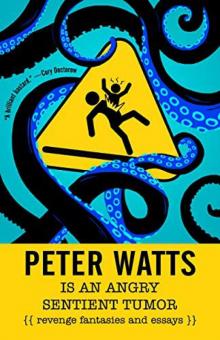

Author: Peter Watts
Category: Science
Published: 2019
Series:
View: 334
Read Online“A brilliant bastard.” —Cory Doctorow
“Comfort, of course, is the last thing that Watts wants to give.” — *New York Review of Science Fiction*
Which of the following is true?
Peter Watts is banned from the U.S.
Watts almost died from flesh-eating bacteria.
A schizophrenic man living in Watts's backyard almost set his house on fire.
Watts was raised by Baptists who really sucked at giving presents.
Peter Watts said to read this book. Or else.
“Watts, undoubtedly, is a genius.” ― Medium
In more than fifty unpredictable essays and revenge fantasies, Peter Watts — Hugo Award-winning author, former marine biologist, and angry sentient tumor — is the savage dystopian optimist whom you can’t look away from. Even when you probably should.
**Review
Praise for Peter Watts
“Watts, undoubtedly, is a genius.”
― Medium
“Peter Watts is some precisely engineered hybrid of Lucius Shepard and Gregory Benford, lyrical yet hard-edged, purveyor of sleek surfaces and also the ethical and spiritual contents inside.”
― Locus
“Known for his pitch-black views on human nature, and a breathtaking ability to explore the weird side of evolution and animal behavior, Watts is one of those writers who gets into your brain and remains lodged there like an angry, sentient tumor.”
― io9
“Peter Watts blows my mind every single time.”
―Kelly Robson, author of Gods, Monsters, and the Lucky Peach
“Watts ranges from huge-scale ideas (“The Island,” with a living membrane surrounding a star) to the immediate (what if airport scanners grew sophisticated enough to detect even potential criminals, in “The Eyes of God”)? He asks the questions that the best science fiction writers ask, but that the rest of us may be afraid to answer.”
― Chicago Tribune
“A sharp and incisive stylist with a rather tragic, if clear-eyed, view of human nature, and the capacity for some remarkable hard-SF inventions.”
― Locus
“Watts continues to challenge readers with his imaginative plots and superb storytelling.”
― Library Journal
“Possessing the stern moral acuity of James Tiptree, [Watts] also exhibits the intellectual zest of Arthur C. Clarke.”
―Paul Di Filippo, Barnes & Noble Review
“It seems clear that every second Peter Watts is not actually writing must be spent reading, out at the cutting edge of all the sciences and all the arts at once.”
―Spider Robinson, author of the Callahan Series
“Holding himself to a higher standard of storytelling, Watts uses the effects of mainstream sci-fi, yet continually aims at something deeper in humanity and society’s soul.”
― Speculiction
Praise for The Freeze-Frame Revolution
2018 British Science Fiction Award nomination
A Publishers Weekly Staff Pick / Summer 2018 Read
A Goodreads Best Sci-Fi/Fantasy title of Jan-August 2018
1000 Year Plan 2018 Recommended Reading List
Locus Recommended Reading List**
“This―THIS―is the future of science fiction." ―Richard A. Morgan, author of Altered Carbon
" The Freeze-Frame Revolution is a delicious morsel of hard science fiction . . . The setup of the book is irresistible, and the science is high-concept, but the story is driven by Sunday’s relationships and her conviction in herself and her companions.”
― Washington Post
“ The Freeze-Frame Revolution (Tachyon), the shortest and latest novel from Canadian Peter Watts, is as brilliant and enticingly acute as any of his earlier and longer work.”
― Seattle Review of Books
“ The Freeze Frame Revolution is the purest driven high concept SF . . . as vivid and carnal and profane as the headiest of high-end literature.”
―Richard Morgan, author of Altered Carbon
"This is definitely vintage Watts―outstanding, exciting, and terrifying.”
―Cory Doctorow, author of Little Brother and Walkaway
“The latest from Watts ( Blindsight , 2006) packs a significant punch into a small package.”
― Booklist
[STARRED REVIEW] “Watts ( Echopraxis ) puts the concept of humanity under the knife, teasing out how Chimp’s programming and Sunday’s loyalty can both tie them together and set them at odds. Watts pits the drive toward success against the need for connection, leading to an ending as open and as expansive as the universe. SF fans will love this tale of bizarre future employment and genuine wonder.”
― Publishers Weekly
[STARRED REVIEW] “Entertaining and provocative, brilliant and ambitious, The Freeze-Frame Revolution is compelling science fiction with heart.”
― Foreword
“Fast, rich, and cool― The Freeze-Frame Revolution fascinates!”
―Greg Bear, author of Eon and Take Back the Sky
“Darkness and awesome technology lurk in Peter Watts’new book, The Freeze-Frame Revolution.”
―Vernor Vinge, author of A Fire Upon the Deep
“A gripping story of a deep human future―the dependent relationship between human and AI tangles and grows with the delicious creep of suspense to the very last page. Watts is a poet when it comes to science. A pleasure to read.”
―Justina Robson, author of Keeping it Real
Watts takes familiar-seeming SF tropes and accelerates them towards lightspeed, until they become something chillingly other. A gripping tale where galactic timescales collide with biology and age-old human dilemmas.”
―Hannu Rajaniemi, author of The Quantum Thief
“The most protracted battle of the minds ever―human vs machine. Brilliant.”
―David Marusek, author of Upon this Rock and Counting Heads
From the Author
From the Author (About the Author):
Peter Watts (www.rifters.com) is a former marine biologist who clings to some shred of scientific rigor by appending technical bibliographies onto his novels. His debut novel, Starfish , was a New York Times Notable Book, while his fourth, Blindsight ― a rumination on the utility of consciousness that has become a required text in undergraduate courses ranging from philosophy to neuroscience―was a finalist for numerous North American genre awards, winning exactly none of them. (It did, however, win a shitload of awards overseas, which suggests that his translators may be better writers than he is.) His shorter work has also picked up trophies in a variety of jurisdictions, notably a Shirley Jackson Award (possibly due to fan sympathy over nearly dying of flesh-eating disease in 2011) and a Hugo Award (possibly due to fan outrage over an altercation with US border guards in 2009). The latter incident resulted in Watts being barred from entering the US―not getting on the ground fast enough after being punched in the face by border guards is a “felony” under Michigan statutes―but he can’t honestly say he misses the place all that much. Especially now.
Watts’s work is available in twenty languages―he seems to be especially popular in countries with a history of Soviet occupation―and has been cited as inspirational to several popular video games. He and his cat, Banana (since deceased), have both appeared in the prestigious scientific journal Nature. A few years ago he briefly returned to science with a postdoc in molecular genetics, but he really sucked at it.
“Comfort, of course, is the last thing that Watts wants to give.” — *New York Review of Science Fiction*
Which of the following is true?
Peter Watts is banned from the U.S.
Watts almost died from flesh-eating bacteria.
A schizophrenic man living in Watts's backyard almost set his house on fire.
Watts was raised by Baptists who really sucked at giving presents.
Peter Watts said to read this book. Or else.
“Watts, undoubtedly, is a genius.” ― Medium
In more than fifty unpredictable essays and revenge fantasies, Peter Watts — Hugo Award-winning author, former marine biologist, and angry sentient tumor — is the savage dystopian optimist whom you can’t look away from. Even when you probably should.
**Review
Praise for Peter Watts
“Watts, undoubtedly, is a genius.”
― Medium
“Peter Watts is some precisely engineered hybrid of Lucius Shepard and Gregory Benford, lyrical yet hard-edged, purveyor of sleek surfaces and also the ethical and spiritual contents inside.”
― Locus
“Known for his pitch-black views on human nature, and a breathtaking ability to explore the weird side of evolution and animal behavior, Watts is one of those writers who gets into your brain and remains lodged there like an angry, sentient tumor.”
― io9
“Peter Watts blows my mind every single time.”
―Kelly Robson, author of Gods, Monsters, and the Lucky Peach
“Watts ranges from huge-scale ideas (“The Island,” with a living membrane surrounding a star) to the immediate (what if airport scanners grew sophisticated enough to detect even potential criminals, in “The Eyes of God”)? He asks the questions that the best science fiction writers ask, but that the rest of us may be afraid to answer.”
― Chicago Tribune
“A sharp and incisive stylist with a rather tragic, if clear-eyed, view of human nature, and the capacity for some remarkable hard-SF inventions.”
― Locus
“Watts continues to challenge readers with his imaginative plots and superb storytelling.”
― Library Journal
“Possessing the stern moral acuity of James Tiptree, [Watts] also exhibits the intellectual zest of Arthur C. Clarke.”
―Paul Di Filippo, Barnes & Noble Review
“It seems clear that every second Peter Watts is not actually writing must be spent reading, out at the cutting edge of all the sciences and all the arts at once.”
―Spider Robinson, author of the Callahan Series
“Holding himself to a higher standard of storytelling, Watts uses the effects of mainstream sci-fi, yet continually aims at something deeper in humanity and society’s soul.”
― Speculiction
Praise for The Freeze-Frame Revolution
2018 British Science Fiction Award nomination
A Publishers Weekly Staff Pick / Summer 2018 Read
A Goodreads Best Sci-Fi/Fantasy title of Jan-August 2018
1000 Year Plan 2018 Recommended Reading List
Locus Recommended Reading List**
“This―THIS―is the future of science fiction." ―Richard A. Morgan, author of Altered Carbon
" The Freeze-Frame Revolution is a delicious morsel of hard science fiction . . . The setup of the book is irresistible, and the science is high-concept, but the story is driven by Sunday’s relationships and her conviction in herself and her companions.”
― Washington Post
“ The Freeze-Frame Revolution (Tachyon), the shortest and latest novel from Canadian Peter Watts, is as brilliant and enticingly acute as any of his earlier and longer work.”
― Seattle Review of Books
“ The Freeze Frame Revolution is the purest driven high concept SF . . . as vivid and carnal and profane as the headiest of high-end literature.”
―Richard Morgan, author of Altered Carbon
"This is definitely vintage Watts―outstanding, exciting, and terrifying.”
―Cory Doctorow, author of Little Brother and Walkaway
“The latest from Watts ( Blindsight , 2006) packs a significant punch into a small package.”
― Booklist
[STARRED REVIEW] “Watts ( Echopraxis ) puts the concept of humanity under the knife, teasing out how Chimp’s programming and Sunday’s loyalty can both tie them together and set them at odds. Watts pits the drive toward success against the need for connection, leading to an ending as open and as expansive as the universe. SF fans will love this tale of bizarre future employment and genuine wonder.”
― Publishers Weekly
[STARRED REVIEW] “Entertaining and provocative, brilliant and ambitious, The Freeze-Frame Revolution is compelling science fiction with heart.”
― Foreword
“Fast, rich, and cool― The Freeze-Frame Revolution fascinates!”
―Greg Bear, author of Eon and Take Back the Sky
“Darkness and awesome technology lurk in Peter Watts’new book, The Freeze-Frame Revolution.”
―Vernor Vinge, author of A Fire Upon the Deep
“A gripping story of a deep human future―the dependent relationship between human and AI tangles and grows with the delicious creep of suspense to the very last page. Watts is a poet when it comes to science. A pleasure to read.”
―Justina Robson, author of Keeping it Real
Watts takes familiar-seeming SF tropes and accelerates them towards lightspeed, until they become something chillingly other. A gripping tale where galactic timescales collide with biology and age-old human dilemmas.”
―Hannu Rajaniemi, author of The Quantum Thief
“The most protracted battle of the minds ever―human vs machine. Brilliant.”
―David Marusek, author of Upon this Rock and Counting Heads
From the Author
From the Author (About the Author):
Peter Watts (www.rifters.com) is a former marine biologist who clings to some shred of scientific rigor by appending technical bibliographies onto his novels. His debut novel, Starfish , was a New York Times Notable Book, while his fourth, Blindsight ― a rumination on the utility of consciousness that has become a required text in undergraduate courses ranging from philosophy to neuroscience―was a finalist for numerous North American genre awards, winning exactly none of them. (It did, however, win a shitload of awards overseas, which suggests that his translators may be better writers than he is.) His shorter work has also picked up trophies in a variety of jurisdictions, notably a Shirley Jackson Award (possibly due to fan sympathy over nearly dying of flesh-eating disease in 2011) and a Hugo Award (possibly due to fan outrage over an altercation with US border guards in 2009). The latter incident resulted in Watts being barred from entering the US―not getting on the ground fast enough after being punched in the face by border guards is a “felony” under Michigan statutes―but he can’t honestly say he misses the place all that much. Especially now.
Watts’s work is available in twenty languages―he seems to be especially popular in countries with a history of Soviet occupation―and has been cited as inspirational to several popular video games. He and his cat, Banana (since deceased), have both appeared in the prestigious scientific journal Nature. A few years ago he briefly returned to science with a postdoc in molecular genetics, but he really sucked at it.
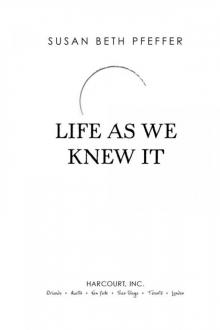 Life as We Knew It
Life as We Knew It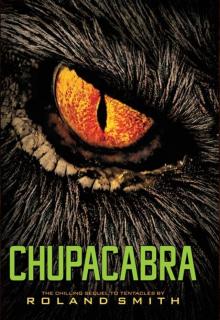 Chupacabra
Chupacabra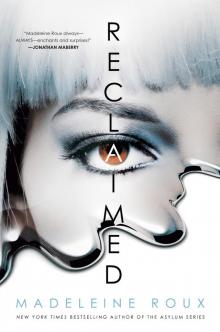 Reclaimed
Reclaimed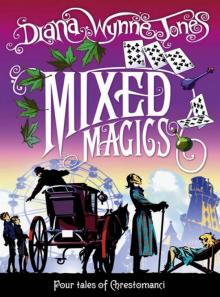 Mixed Magics (UK)
Mixed Magics (UK)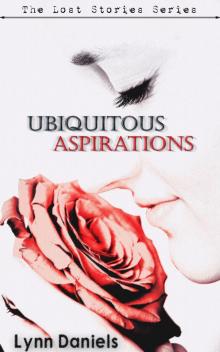 Ubiquitous Aspirations
Ubiquitous Aspirations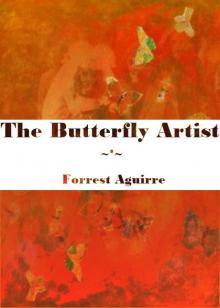 The Butterfly Artist
The Butterfly Artist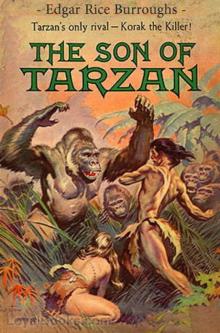 The Son of Tarzan
The Son of Tarzan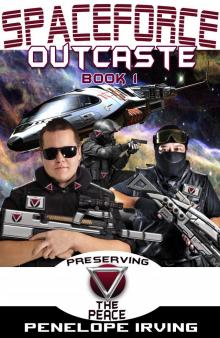 Outcaste
Outcaste